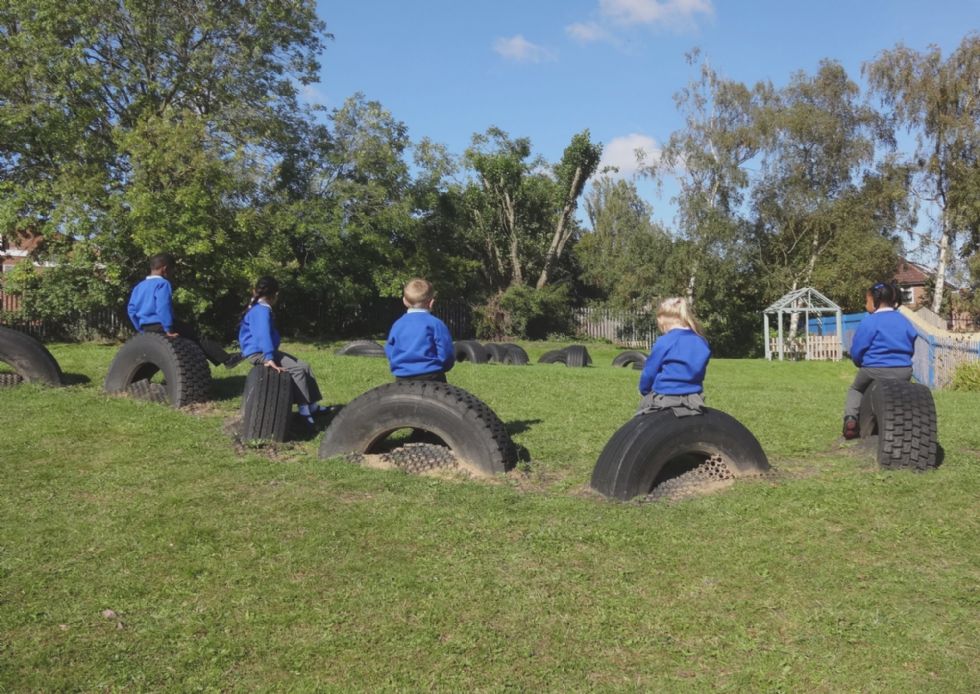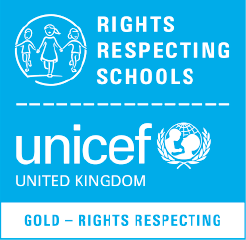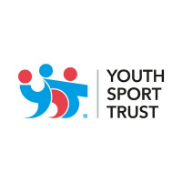Pastoral Curriculum
WE CAN provide the knowledge and skills to unlock learning through a pastoral curriculum removing barriers and developing strength of character in order that all of our children have the keys to unlock their futures and believe WE CAN.
The Pastoral Curriculum includes all the support that we as a school provide to ensure all children are able to access their education and live happy and fulfilled lives as fully rounded individuals.
Pastoral Curriculum Intent
National benchmarks show that, on entry to Grendon, attainment is significantly below age related expectations. Children are likely to live in an area of high deprivation, communication skills may be below those expected for their age and the majority attract pupil premium funding. It is likely a range of support will be needed in order to remove barriers to learning.
Our school ethos is clear: We Can. Our vision is for children to leave Grendon with the skills, knowledge and strength of character to be successful, unlock their future and believe 'We Can'.
There is a clear gap between where our children are and where we want them to be. It is our intent for our pastoral and academic curricula to become the vehicle to close it. As our vision highlights, we are clear that our pastoral curriculum removes barriers and develops strength of character. By developing each child as a whole, we provide the skills, knowledge and self-belief that are espoused in our ethos and vision.
This document sets out how our pastoral curriculum achieves this and links to our school aims and curriculum intent statement.
We can… Provide teaching that develops knowledge and skills so children learn and progress effectively
Curriculum Intent Statement:
Our academic curriculum is knowledge engaged and fulfils the statutory requirements of the national curriculum. We know that knowledge opens doors for our children but also that this needs supporting by the teaching of transferable skills. We know our children learn best when they are able to make links, understand the purpose and do not see learning as a set of disconnected facts. Vertical links within a subject ensure progression is clear and build on prior knowledge and understanding. Horizontal links make learning relevant, give a meaningful context and help children make sense of their world. These links also ensure appropriate focus on developing reading, writing and maths across the curriculum; to make sense of learning, to close gaps in attainment and to drive children to be the best they can be. Subject specific, blocked units of work for all subjects ensure breadth and balance. Each year group has subject specific objectives along with a set of progression points ensuring children access age related expectations. It is clear at the start of each unit what achievement looks like, as assessment criteria are built in.
Pastoral Curriculum:
Our pastoral curriculum ensures a right to learn for pupils and a right to teach for staff. Our school is a place for children to learn and we work hard to ensure that children understand the behaviour expectations for them in school. Children understand that we expect them to behave in a certain way so that they and their peers can learn and teachers can teach.
- We create environments conducive to teaching and learning.
- A robust Behaviour Policy ensures that clear expectations for behaviour are outlined for children and staff. Sanctions and rewards are clear and consistent across school and shared with parents.
- Teachers, Key Stage Leaders, SLT and all other staff are involved in the behaviour process. When children are unable or choosing not to behave appropriately, support Pastoral Curriculum Intent Statement from Leadership in line with Behaviour Policy, is implemented swiftly. At this point, parental support and involvement is strongly encouraged.
- Where clear needs are identified for specific children, appropriate advice is sought and interventions are put in place to ensure that these children can access learning. Staff work well to support one another and ensure consistent and cohesive practice.
- Older children understand the importance of being a positive role to others.
We Can… Offer enriching activities, events and experiences
Curriculum Intent Statement:
To ensure the best engagement and focus that will close learning gaps, our academic and pastoral curricula provide the rich, first hand, purposeful experiences that our children need.
Our Grendon Passport, enterprise scheme, educational visits, work with the local community, extra- curricular activities and whole school days excite and engage, and develop a specific skill set with the focus still firmly on intended learning outcomes.
Pastoral Curriculum:
Our pastoral curriculum ensures opportunities for enrichment beyond the academic curriculum which raise aspiration, develop life skills, celebrate interests, talents, achievements and skills and provide memorable experiences.
- Real life opportunities for learning are embedded within our whole school enrichment days, school council days, passport days, clubs and assemblies.
- Aspirations are raised as a result of providing opportunities for children to meet and learn from visitors to our school e.g. first aiders, Olympians, the Mayor, artists and musicians.
- Children gain external accreditation for their learning, including play leader accreditation from our local sports partnership, swimming badges, music examinations and a bikeability award.
- We encourage children to share their successes with us in school.
- We offer positions of responsibility (For example: Head Boy and Girl, Ambassadors and Prefects) which prepare children for any responsibilities they may face in the future.
- We offer a diverse range of extra-curricular clubs which teach new skills and develop personal interest, e.g. outdoor learning club, football training and health for life club. Musical opportunities include the school choir and orchestra.
- We offer children in KS2 the opportunity to participate in a residential experience. For Year 6 and 5 pupils, there is a three-day adventure holiday. For Years 3 and 4 pupils, an overnight stay at a castle. These opportunities enable children to experience a different part of the world, develop independence, confidence, friendships and routines.
- Our assemblies build community and character, mark significant events and celebrate achievement.
We Can… Work together to remove barriers and ensure equality
Curriculum Intent Statement:
While we are clear about the needs of our school as a whole, we offer opportunities to personalise learning for individuals and groups of children. Those who struggle academically are given targeted support to develop at their own pace or simply learn in a style that best suits individual needs. Those who are exceeding expectations are challenged to demonstrate sustained mastery and a greater depth of understanding. There are clear plans to maximise progress and ensure access to the curriculum children with EAL and those entitled to Pupil Premium funding.
Pastoral Curriculum:
Our Pastoral Curriculum removes barriers to learning in order that all children are able to access learning and progress.
- We support children with additional needs or who are dealing with barriers to learning. Our response is well co-ordinated ensuring children have every opportunity to make good progress and achieve well.
- Parents of children with Special Educational Needs (SEND) are invited to regular review meetings where achievements and new targets are discussed and concerns may be raised. They receive appropriate support from outside agencies.
- Parents of children with Targeted Support Plans are also updated on progress towards these targets including concerns or further actions.
- We work with outside agencies to support a variety of needs to remove barriers to learning, including the school nurse, behaviour consultant, sweet project and speech and language therapists.
- The Sweet Project offers specific family support and individual work with children, where are early help assessments identify need.
- The Early Help Assessment and Our Family Plans are where needs are identified by either school, outside agencies or families, to give additional support from a variety of agencies.
- School works closely with Birmingham Children’s Trust and uses the Right Help, Right Time approach to deliver effective support for children and families at our school.
Pupil Premium funding is effective in removing barriers and closing attainment gaps. Our policy highlights that Strand 3 support is directed entirely at addressing wider pastoral support and includes
- Engaging outside agencies (e.g. speech therapy, School Nurse and Behaviour Consultant
- Engaging the Sweet Project to support targeted families
- To ensure a smooth transition from home to school, Grendon has clear, consistent rules and routines for the start and end of the day.
- Where it is necessary, special arrangements may be made for children, including working alongside parents or other agencies, or introducing a reduced or amended timetable in agreement with parents or carers.
- For children who require support, early interventions may include accessing appropriate opportunities e.g. lunchtime support, targeted support, specialist professionals and signposting for children and families.
- Individuals or groups with behavioural, medical or emotional needs are supported by the Pastoral Manager who works closely with: Senco, Local Community partners and the Sweet Project.
School works closely with Parents/Carers and outside agencies to ensure regular attendance using Local Authority guidance and school systems. Parents/Carers are offered advice and support to improve their child’s attendance. Where necessary, school and Local Authority may take legal action to ensure children’s legal entitlement to an education.
- Any ongoing attendance concerns or agency information is shared and where necessary acted upon using Birmingham’s Right Help Right Time model.
- School uses the Local Authority Fast Track Process and Leave in Term Time (Penalty Notice) Process.
- Weekly assemblies, incentives and rewards are given to individuals and classes. Term attendance rewards (E.g. cinema or bowling trips) are also offered. Children are aware of why they need to come to school and can talk about these reasons.
- Expectations for Parents/Carers are made clear through publications, school website, meetings and legal processes.
- Parents are able to access specialist support services through school where issues have been identified that will address any barriers preventing children from attending or any new concerns raised.
We value the strong relationships with our children in order to remove barriers. Staff are very aware of the impact emotions and life events can have on children’s ability to succeed at school. We are quick to evaluate changes to children’s behaviour. On a daily basis, input from all levels of the team (Head Teacher, Leadership team, Pastoral Manager, Senco, Class Teachers, Teaching Assistants, Office Staff and lunchtime Supervisors) is geared to ensuring children emotionally settled and ready and able to learn.
- Adults in our school recognise their vital role as role models to the children.
- Class teachers develop a safe, welcoming classroom environment with clear and consistent expectations. They monitor the day to day behaviour of children.
- Teaching Assistants play a key role in the process e.g. settling an upset child during registration or having a quiet chat. They also have an important role in monitoring behavioural changes.
- Lunchtime supervisors support the safe, stimulating and caring environment and act as a friendly ear for any concerns the children raise. Children who need additional support during lunchtimes can access Games Clubs and Senior Staff on duty.
We understand the importance in removing barriers and ensuring equality by working closely with our parents, families and communities.
- Termly class newsletters explain learning focuses for the term, inform of forthcoming events and set out clear expectations.
- A Parent Welcome meeting is held with for each class at the start of the Autumn term. This is an opportunity to meet staff, ask questions and know what children will be learning in that academic school year and school expectations for the year band. We encourage parents/carers to be partners in their children’s learning.
- A whole school newsletter is sent out every half term. This includes useful reminders, samples of work and children’s reports. Important school and community events are featured. Newsletters are visually appealing and accessible to parents.
- The parent’s noticeboard is regularly updated. It features newsletters and useful updates and information on community events and wider opportunities. It is located in the entrance area of school.
- Our website is informative and accessible. It has useful information about day to day routines in school and other information including policies and help and advice for parents and their families.
- Parents are invited into schools to participate in children’s learning. We believe that this has a positive impact on both the children’s learning and on parental engagement.
- Teachers make time to meet parents informally. This is either at the beginning or end of the school day. Following these meetings, staff are effective at signposting to other members of staff where appropriate.
- Formal Parents Evenings are held three times each academic year. They are well attended and the percentage of attendance for each class is reported to governors. We offer appointment times that are reflective of parents working commitments. As a school we follow up missed appointments and try our best to enable all parents to attend.
- In the Early Years, Tapestry is used as an online record of children’s learning. It is accessible to parents providing open communication and opportunities to view and support learning.
- Opportunities for parents to participate in their child’s classroom are carefully planned into the curriculum. For example: Stay and play events in Reception and Learning Together workshops throughout the school. Parents are positive about the opportunity to support their child in school and numbers are increasing as parents gain confidence in supporting their child in school.
- We use coffee mornings and afternoons as an informal way to consult parents. We identify further education opportunities and strengthen links between school and home. Through communicating with our parents and we are able to identify what we can do to strengthen relationships between school and home.
- Parents are also invited to celebrate children’s successes in award assemblies, concerts, plays and take part in worship during special festivals.
School values parent’s opinions and an annual survey is carried out to gather parental views on school. The findings of the surveys are used to inform the Self Evaluation Form (SEF) and School Improvement Plan (SIP). This then identifies further areas of improvement in our practice to ensure the safety and well-being of our children.
We Can… Listen to and treat each other and all members of the community with respect, tolerance and concern
Curriculum Intent Statement:
We know that our school community is diverse. We see this as a strength. Our academic and pastoral curricula reflect the value and importance of teaching tolerance and respect. RE, PSHE, British Values and Children’s Rights are taught explicitly through lessons and collective worship opportunities. Objectives are clear and progressive. It is our intention that children are given opportunities to engage, discuss, explain, listen and question, ensuring they are well prepared for life in their community and in modern Britain.
Pastoral Curriculum:
Our pastoral curriculum ensures a right to be safe. We know that children will do their best when they feel safe and secure. We take our responsibilities for children’s safety seriously and ensure that our children are safe in school. We recognise the importance of both emotional and physical safety.
- We regularly consult the children on how ‘safe’ they feel at school and use the outcome of these surveys to implement necessary changes.
- Children are well aware that they can approach any adult in school for emotional support or advice. We provide secure places for the children to be at playtimes and lunchtimes with access to staff and other curricular opportunities.
- The school environment has been developed to ensure children will be safe but stimulated. Appropriately sized rooms and furniture are provided in classrooms and arranged to maximise space and safety. Quieter areas are well lit and open. The school grounds are well maintained, secure and checked regularly.
- We expect children will move safely and sensibly around school. Staff remind children of this regularly. Children understand the need to take responsibility for their own safety and behaviour around the school site.
- Staff understand the role of the Designated Safeguarding Lead and what to do if they have any safeguarding concerns. The DSL and other key staff attend all required training and update meetings. All school staff receive regular training updates and reviews. Safeguarding concerns are quickly identified and the relevant outside agencies involved. Staff handbooks contain important information and reminders.
- School uses the Right Help, Right Time approach and signs of safety and well-being framework in line with local authority guidance.
- Section 175 Audit is completed with safeguarding governors and Lead staff, it identifies areas of improvement to ensure the safety and well-being of our children. Designated governors and DSL meet half termly and report back to the full Governing Board.
Life Education is a vehicle to deliver emotional literacy to children as well as preparing them for the challenges of life. The Life Education curriculum is overseen by our PSHE coordinator.
- Every half term the whole school focuses on a different We Can theme. This theme is introduced by class teachers at the beginning of each half term and ends with a Whole School assembly celebrating linked achievements, Parents and Carers are welcomed at this event.
- Each class has a weekly PSHE lesson where children investigate the whole school theme, their own and others’ emotions through class discussion and have personal reflection and shared circle time.
- At the end of a half term, achievements in PSHE are celebrated at a whole school We Can Assembly.
- We maintain our commitment to promoting healthy food and life choices.
- We recognise the linked elements of food, exercise and mental health and well-being as equally important.
- Specialist provision is available where concerns are raised about children’s health and well-being. School sign posts and supports Parents/Carers with referrals and assessments.
- Throughout the school, children are taught resilience, growth mindset skills and techniques so that they develop a ‘We Can’ positive attitude.
- School recognises the need to raise awareness and provide knowledge about Mental Health and well being in the community and with our staff and children.
- School believe that developing children's emotional intelligence and literacy is key to them being able to manage their emotions and communicate them through words and recognise them in other children.
At Grendon we combine our pastoral and academic curricula to provide learning opportunities that nurture, teach and prepare our children for life in modern Britain.
- We support our children’s journey to become citizens who make a positive contribution to their school, community and world around them.
- We promote our British values and democracy, the rule of law, a culture of respect, importance of individual liberty and respect for all.
- We help children experience acting in posts of responsibility, participate in rule making and election of representatives.
- We plan themes that promote empathy, understanding and equality.
In our school we are committed to teaching languages (French) to children and we begin this with an introduction in Year 1. We believe that an understanding of different language and culture is beneficial to children as it encourages respect and understanding of other cultures.
- Through fundraising events, we encourage our children to become responsible global citizens.
- We raise awareness of world issues and respond to good causes as a whole school e.g. contributing to local and national charities through themes relating to sharing resources, providing shelter and supporting the less fortunate.
We encourage children at Grendon to have a sense of belonging to enable children to feel safe and secure in the school environment to facilitate achievement. We encourage children to take pride in their own, and other’s work and achievements and support children in gaining confidence. We celebrate success throughout the school.
- Teachers work hard to establish a class identity and Key Stage Leaders promote how children’s sense of belonging to their particular Key Stage.
- Whole school initiatives such as environmental awareness, international projects and charity fundraising are used to promote a shared purpose.
- The school’s uniform and logo are a visual clue of belonging.
- A full range of awards for academic and social achievements (Awards Assemblies, We Can Awards and Attendance) are regularly given.
- Parents are invited to support these celebrations.
- In classrooms, around school and during play and lunch times, stickers or praise are used to reward children doing well.
- We celebrate children’s talents, allowing children to share their musical and sporting successes in assembly times.
We Can… Build independent and resilient learners who are able to communicate confidently
Curriculum Intent Statement:
We know that we need to build on and develop the learning skills and behaviours that our children bring to us. It is our intent that our academic and pastoral curricula maximise opportunities to develop communication skills, independence and resilience in learners. The implementation of the academic curriculum is focussed on this.
Pastoral Curriculum:
Our pastoral curriculum ensures pupils have a voice and communicate effectively.
- A survey gathers children’s views on all aspects of school life. We use this to evaluate practice and identify trends or concerns. This feeds into the SIP and SEF and informs areas for school and staff development. There are opportunities for School Council representatives to discuss, understand and feedback survey outcomes to classes. It is essential element of our response to the finding
Children are encouraged to share their views and to take on real responsibilities. Opportunities include:
- Termly Conversations with Children built into monitoring cycles
- Head boy, Head Girl and Senior Prefect roles allocated annually to Year 6 pupils
- School Council representatives for Year 2 to 6 pupils
- Play Leaders – Key Stage 2 pupils who work at lunchtimes to encourage play and development in KS1
- Ambassadors – Year 5 pupils ‘work experience’ in the school office
- Class monitors
- Sparkly folders – peer reading
- Collaborative work such as peer marking in class
- Enrichment opportunities
- Talk Boost training
We Can… Recognise ability, maximise potential and prepare children well for their future and life in modern Britain
Curriculum Intent Statement:
We know that our children need to make strong progress in order to close gaps in attainment, be successful and be well prepared for the next stage. We know that if the intent described above is implemented effectively, the impact of our curricula will be just that. It will ensure that our school vision becomes reality
Pastoral Curriculum:
Developing a whole person is key to achievement and preparing children for their futures. Our pastoral curriculum is rightly focussed on this, providing a variety of experiences, teaching respect and valuing one another encourages a child to develop a healthy and positive view of the world and their ability to make the most of opportunities available to them.









